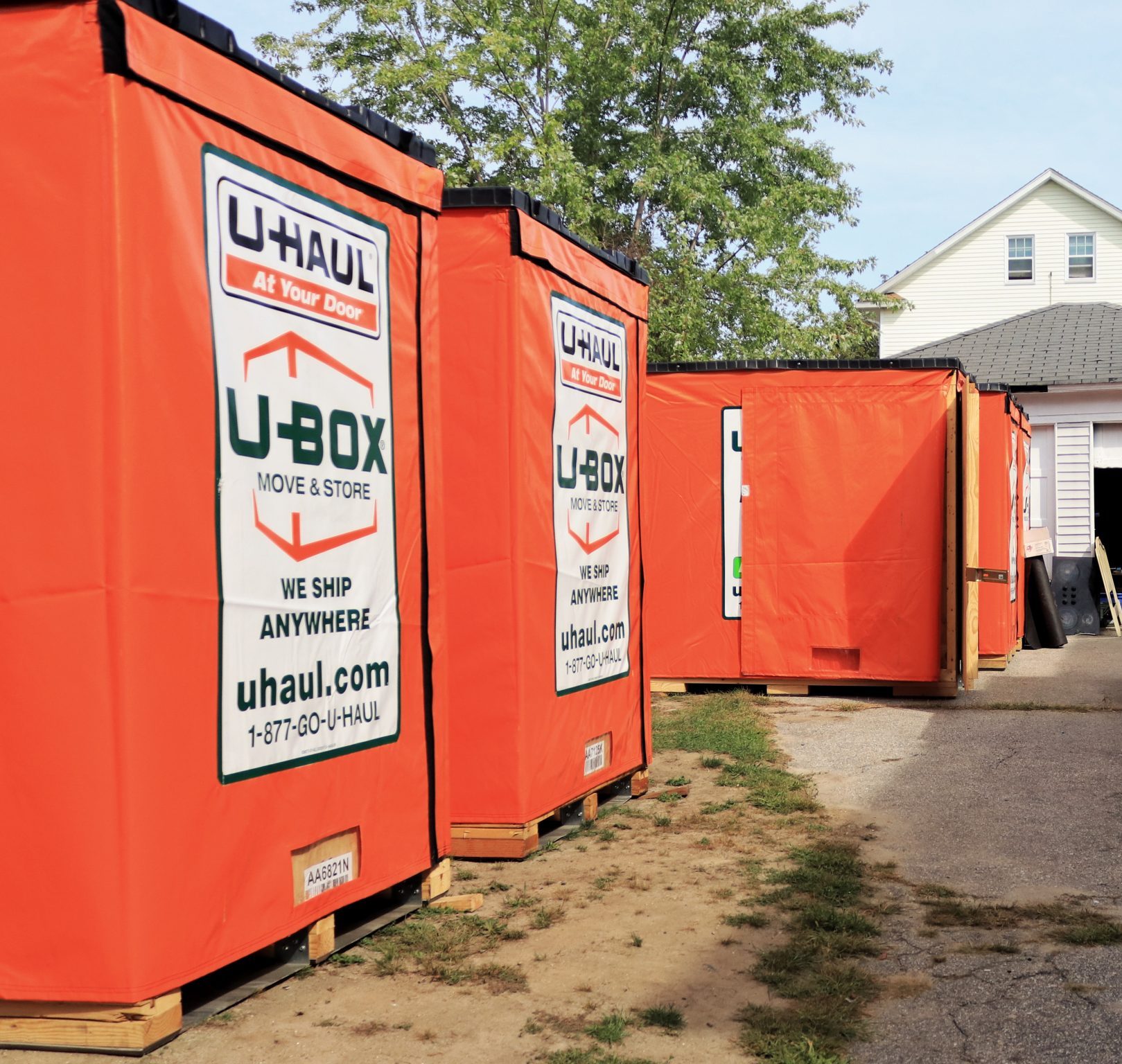U-Haul Rental Trucks Prices: Your Comprehensive Guide to Cost-Effective Moving cars.truckstrend.com
Moving, whether across town or across the country, often brings with it a complex web of logistics and, perhaps most importantly, costs. For millions of do-it-yourself movers, U-Haul stands as a quintessential solution, offering a diverse fleet of rental trucks designed to fit various needs. However, navigating the "U-Haul rental trucks prices" landscape can be daunting, as the final cost is influenced by a multitude of factors beyond just the truck’s size. Understanding these dynamics is crucial for budgeting effectively and ensuring a smooth, affordable transition to your new home.
This comprehensive guide aims to demystify U-Haul’s pricing structure, breaking down the components that contribute to your final bill. From understanding base rates and mileage to deciphering the nuances of local versus one-way rentals and uncovering potential hidden costs, we’ll equip you with the knowledge needed to make informed decisions and save money on your next move.
U-Haul Rental Trucks Prices: Your Comprehensive Guide to Cost-Effective Moving
The U-Haul Pricing Model Explained: Decoding Your Bill
U-Haul’s pricing model is designed to be flexible, accommodating both short, local hauls and long-distance journeys. While seemingly straightforward, it comprises several key components that combine to form your total rental cost.
-
The Base Rate: This is the foundational cost for your rental truck.
- Local Rentals: For rentals where you pick up and return the truck to the same U-Haul location, the base rate is typically a flat daily fee, often starting as low as $19.95 or $29.95, depending on the truck size. This is just the starting point.
- One-Way Rentals: For rentals where you pick up at one location and drop off at another, the base rate is a flat, predetermined fee for the entire trip. This rate is highly dynamic, influenced by the specific origin and destination, the date, and truck availability. It often includes a set number of mileage miles and days.

-
Mileage Charges: This is where the distance you travel significantly impacts your cost.
- Local Rentals: After the base daily rate, a per-mile charge is added. This rate can vary, typically ranging from $0.69 to $1.29 per mile, depending on the location and demand.
- One-Way Rentals: The initial flat rate usually includes a specific mileage allowance. If you exceed this allowance, you will incur additional per-mile charges, which can be higher than local mileage rates.
-
Environmental Fee: A small, mandatory fee (typically $1.00 to $5.00) added to nearly every rental to cover environmental compliance costs.
-
Taxes: State and local sales taxes will be applied to the total rental cost, varying by jurisdiction.
-
Fuel Costs: U-Haul trucks are rented with a specific fuel level (e.g., full, or a marked level). You are responsible for returning the truck with the same amount of fuel. Failure to do so will result in a refueling charge, which includes the cost of the fuel plus an administrative fee. This is often the most significant variable cost for longer trips.
-
Optional Add-ons: These are extra services or products you can choose to include, such as insurance, moving equipment, or packing supplies, each adding to the total cost.
Understanding these core components is the first step in accurately estimating your U-Haul rental expenses.
U-Haul Truck Sizes and Their Typical Price Ranges
U-Haul offers a range of truck sizes, each suited for different moving needs. The larger the truck, the higher its base rental rate.
-
Pickup Truck: Ideal for small hauling jobs, furniture, or quick local errands.
- Estimated Local Daily Base Rate: $19.95 – $29.95
- Estimated Local Mileage Rate: $0.69 – $0.99 per mile
- One-Way: Limited availability, often priced similarly to cargo vans for short distances.
-
Cargo Van: Perfect for studio apartments, dorm rooms, or small loads.
- Estimated Local Daily Base Rate: $19.95 – $29.95
- Estimated Local Mileage Rate: $0.69 – $0.99 per mile
- One-Way: Varies significantly by route and demand, typically starting from $100-$300+ for short distances.
-
10′ Truck: Suitable for a studio or 1-bedroom apartment.
- Estimated Local Daily Base Rate: $29.95 – $39.95
- Estimated Local Mileage Rate: $0.79 – $1.09 per mile
- One-Way: Highly dynamic, can range from $200 for short interstate moves to $1,000+ for cross-country.
-
15′ Truck: Good for a 1-2 bedroom apartment or small house.
- Estimated Local Daily Base Rate: $29.95 – $39.95
- Estimated Local Mileage Rate: $0.89 – $1.19 per mile
- One-Way: Dynamic, often $300 for short interstate moves to $1,500+ for cross-country.
-
17′ Truck: Designed for a 2-3 bedroom house.
- Estimated Local Daily Base Rate: $39.95 – $49.95
- Estimated Local Mileage Rate: $0.99 – $1.29 per mile
- One-Way: Dynamic, typically $400 for short interstate moves to $2,000+ for cross-country.
-
20′ Truck: Ideal for a 3-4 bedroom house.
- Estimated Local Daily Base Rate: $39.95 – $49.95
- Estimated Local Mileage Rate: $0.99 – $1.29 per mile
- One-Way: Dynamic, often $500 for short interstate moves to $2,500+ for cross-country.
-
26′ Truck: U-Haul’s largest truck, suitable for 4+ bedroom homes.
- Estimated Local Daily Base Rate: $39.95 – $49.95
- Estimated Local Mileage Rate: $0.99 – $1.29 per mile
- One-Way: Dynamic, can range from $600 for short interstate moves to $3,000+ for cross-country.
Note: The "Estimated Local Daily Base Rate" is the starting advertised price. The "Estimated Local Mileage Rate" is per mile. One-way prices are highly variable and are determined by U-Haul based on demand, location, and season at the time of booking.
Local vs. One-Way Rentals: Understanding the Price Difference
The distinction between local and one-way rentals is fundamental to U-Haul’s pricing and your overall cost.
Local Rentals
- Definition: You pick up and return the truck to the same U-Haul location.
- Pricing: Consists of the low daily base rate ($19.95-$49.95) plus a per-mile charge ($0.69-$1.29/mile), plus the environmental fee and taxes.
- Best for: Short-distance moves (e.g., within a city or county), hauling large items from a store, or home improvement projects. The total cost is heavily dependent on the mileage driven.
- Benefits: Often more budget-friendly for short distances due to the low daily base rate.
One-Way Rentals
- Definition: You pick up the truck at one U-Haul location and drop it off at a different U-Haul location.
- Pricing: A flat, all-inclusive rate for the entire trip, which covers a set number of days and miles. This rate is dynamically priced and depends heavily on the specific origin and destination, the time of year, and the availability of trucks going in that particular direction. Exceeding the allotted mileage or days will incur additional charges.
- Best for: Cross-town, cross-state, or cross-country moves where returning to the original location is impractical or impossible.
- Benefits: Convenience and flexibility for long-distance moves. The price is quoted upfront, providing more predictability (unless you exceed mileage/days).
- Important Note: One-way prices fluctuate significantly. A 100-mile one-way trip might cost more than a 500-mile trip if the shorter route is in high demand or going against the typical flow of trucks. Always get a direct quote from U-Haul for your specific one-way route.
Factors Influencing U-Haul Rental Prices (Beyond Size & Distance)
Several other variables can significantly impact the final cost of your U-Haul rental:
- Demand & Availability: This is perhaps the biggest influencer for one-way rentals.
- Peak Seasons: Summer months (May-August), especially around college move-in/out dates, and the end/beginning of each month are high-demand periods. Prices will be considerably higher during these times due to limited availability.
- Holidays: National holidays also see increased demand and higher prices.
- Location: Prices can vary based on the pick-up and drop-off locations. Urban centers might have different rates than rural areas, and certain routes are more popular (and thus more expensive) than others.
- Duration of Rental: While local rentals are typically daily, one-way rentals come with a specific number of allotted days. Exceeding this will incur extra daily charges.
- Booking in Advance: Especially for one-way rentals during peak seasons, booking weeks or even months ahead can secure a better rate and ensure truck availability. Last-minute bookings are often more expensive.
- Day of the Week: Weekends are generally more expensive than weekdays for local rentals due to higher demand. If possible, consider moving mid-week.
- Promotions/Discounts: While U-Haul doesn’t offer many widespread discounts like AAA or military, it’s always worth checking their website for any current promotions or specials.
Optional Add-Ons and Their Costs
While not mandatory, these additions can provide peace of mind or make your move easier, but they will add to your total cost.
- Damage Coverage (Safemove/Safemove Plus):
- Safemove: Protects you from damage to the rental truck, cargo damage (up to a limit), and offers medical/life coverage. Typically costs $15-$30+ per day, depending on the truck size.
- Safemove Plus: Offers higher coverage limits, includes supplemental liability insurance, and a zero-deductible for collision damage. Can range from $25-$50+ per day.
- Consideration: Check your personal auto insurance policy and credit card benefits. Some policies offer rental truck coverage, which could save you money. However, U-Haul’s specific coverages are often more comprehensive for moving-related incidents.
- Towing Equipment: If you plan to tow your vehicle behind the U-Haul truck.
- Car Carrier: For towing all four wheels of a vehicle. Daily rental is typically $40-$60 for local, or part of the one-way quote.
- Tow Dolly: For towing two wheels of a vehicle. Daily rental is typically $30-$50 for local, or part of the one-way quote.
- Moving Equipment:
- Utility Dolly: $7-$10 per day.
- Appliance Dolly: $10-$15 per day.
- Furniture Pads (Dozen): $5-$10 per dozen per day.
- Packing Supplies: While not a "rental" cost, U-Haul sells a wide range of boxes, tape, bubble wrap, mattress covers, and other packing essentials. These are purchased outright and can add significantly to your budget.
Tips for Saving Money on Your U-Haul Rental
Strategic planning can lead to substantial savings on your U-Haul rental:
- Book Early: Especially for one-way rentals during peak season (summer, end-of-month), booking several weeks or even months in advance can lock in a better rate and guarantee truck availability.
- Be Flexible with Dates: If your schedule allows, choose a mid-week or mid-month move. Avoiding weekends and the beginning/end of the month can result in lower rates, particularly for local rentals.
- Accurately Estimate Your Needs: Rent the smallest truck size that will comfortably fit all your belongings. Overestimating means paying for unused space, while underestimating might lead to multiple trips or needing a larger, more expensive truck later.
- Consider Local vs. One-Way Carefully: For moves just outside your local area, compare the cost of multiple local trips versus a single one-way rental. Sometimes, a series of short local rentals can be cheaper if the mileage isn’t excessive.
- Pack Smart & Light: The lighter your load, the better your fuel economy. Disassemble furniture, pack efficiently, and avoid hauling unnecessary items.
- Return on Time (and with Fuel!): Avoid late fees by returning the truck promptly. Always return the truck with the same amount of fuel (or more) than when you picked it up to avoid costly refueling charges.
- Decline Unnecessary Add-ons: Carefully evaluate whether you need U-Haul’s insurance. If your personal auto insurance or credit card provides sufficient coverage, you can save on these daily fees.
- BYO Moving Equipment & Supplies: If you have your own dollies or furniture pads, or can borrow them, you’ll save on rental fees. Purchase boxes and packing supplies from discounted sources or reuse old ones.
U-Haul Rental Trucks Estimated Price Table
| Truck Size | Ideal Use Case | Estimated Local Daily Base Rate | Estimated Local Mileage Rate | Estimated One-Way Price (Disclaimer) |
|---|---|---|---|---|
| Pickup Truck | Small hauling, furniture, local errands | $19.95 – $29.95 | $0.69 – $0.99 per mile | Limited availability; typically short distances; varies greatly by route |
| Cargo Van | Studio/dorm, small apartment, local deliveries | $19.95 – $29.95 | $0.69 – $0.99 per mile | $100 – $300+ (for short distances); highly dynamic for longer routes |
| 10′ Truck | Studio or 1-bedroom apartment | $29.95 – $39.95 | $0.79 – $1.09 per mile | $200 – $1,000+ (varies by route, distance, demand, and season) |
| 15′ Truck | 1-2 bedroom apartment or small house | $29.95 – $39.95 | $0.89 – $1.19 per mile | $300 – $1,500+ (varies by route, distance, demand, and season) |
| 17′ Truck | 2-3 bedroom house | $39.95 – $49.95 | $0.99 – $1.29 per mile | $400 – $2,000+ (varies by route, distance, demand, and season) |
| 20′ Truck | 3-4 bedroom house | $39.95 – $49.95 | $0.99 – $1.29 per mile | $500 – $2,500+ (varies by route, distance, demand, and season) |
| 26′ Truck | 4+ bedroom house | $39.95 – $49.95 | $0.99 – $1.29 per mile | $600 – $3,000+ (varies by route, distance, demand, and season) |
Disclaimer: All prices listed are estimates and can vary significantly based on location, demand, season, truck availability, promotions, and the exact mileage and duration of your rental. One-way prices are particularly dynamic and are best obtained through a direct quote from U-Haul for your specific trip details. Mileage rates for local rentals can also vary by U-Haul dealer.
Frequently Asked Questions (FAQ)
Q: How do U-Haul one-way prices work?
A: One-way prices are flat rates determined by U-Haul based on your specific origin and destination, the date of your rental, truck availability, and overall demand for that route. They include a set number of miles and days. The price is quoted upfront for the entire trip, but exceeding the allotted miles or days will incur additional charges.
Q: Is U-Haul rental insurance mandatory?
A: No, U-Haul’s damage coverage (Safemove/Safemove Plus) is optional. However, it’s highly recommended unless you confirm that your personal auto insurance policy or credit card provides sufficient coverage for rental trucks. Standard auto insurance often does not cover rental trucks or cargo.
Q: What is the environmental fee?
A: The environmental fee is a small, mandatory charge (typically $1.00 to $5.00) added to nearly all U-Haul rentals to help cover the costs associated with environmental compliance and proper disposal of materials.
Q: Do I need to fill up the gas tank before returning the truck?
A: Yes, you are required to return the U-Haul truck with the same amount of fuel as when you picked it up. The fuel level will be noted on your contract. If you return it with less fuel, U-Haul will charge you for the missing fuel plus a refueling service fee.
Q: Can I extend my U-Haul rental period?
A: Yes, you can typically extend your rental, but it’s crucial to contact U-Haul as soon as possible. Extensions are subject to truck availability and will incur additional daily charges. Failing to communicate an extension can lead to late fees and potential legal issues.
Q: What if I return the truck late?
A: Returning the truck late without prior approval can result in late fees, which are often the standard daily rate for each additional day or a significant portion thereof. It can also inconvenience the next customer and impact your future rental eligibility.
Q: Are there any hidden fees with U-Haul?
A: U-Haul is generally transparent with its pricing. Most "hidden" fees are actually charges for services or situations clearly outlined in the rental agreement, such as:
- Exceeding mileage allowance (for one-way rentals).
- Not refueling the tank to the original level.
- Returning the truck late.
- Returning the truck excessively dirty.
- Not returning rented moving equipment (dollies, pads).
The best way to avoid unexpected charges is to read your contract carefully and understand all terms and conditions.
Conclusion
Navigating U-Haul rental truck prices requires more than just knowing the starting daily rate. It’s a multifaceted calculation influenced by truck size, rental type (local vs. one-way), distance, duration, optional add-ons, and dynamic market factors like demand and seasonality. By understanding each component of the pricing model, leveraging smart planning tips, and being aware of potential additional costs, you can effectively budget for your move.
While U-Haul offers an unparalleled network and fleet for DIY movers, the key to a cost-effective experience lies in thorough research and proactive decision-making. Armed with this comprehensive guide, you’re now better prepared to secure the right U-Haul truck at the best possible price, ensuring your move is as smooth and affordable as possible.


